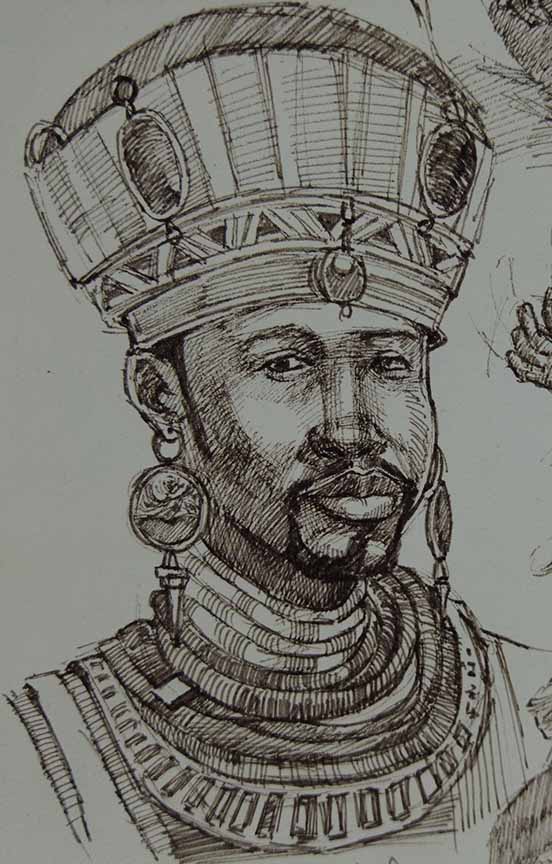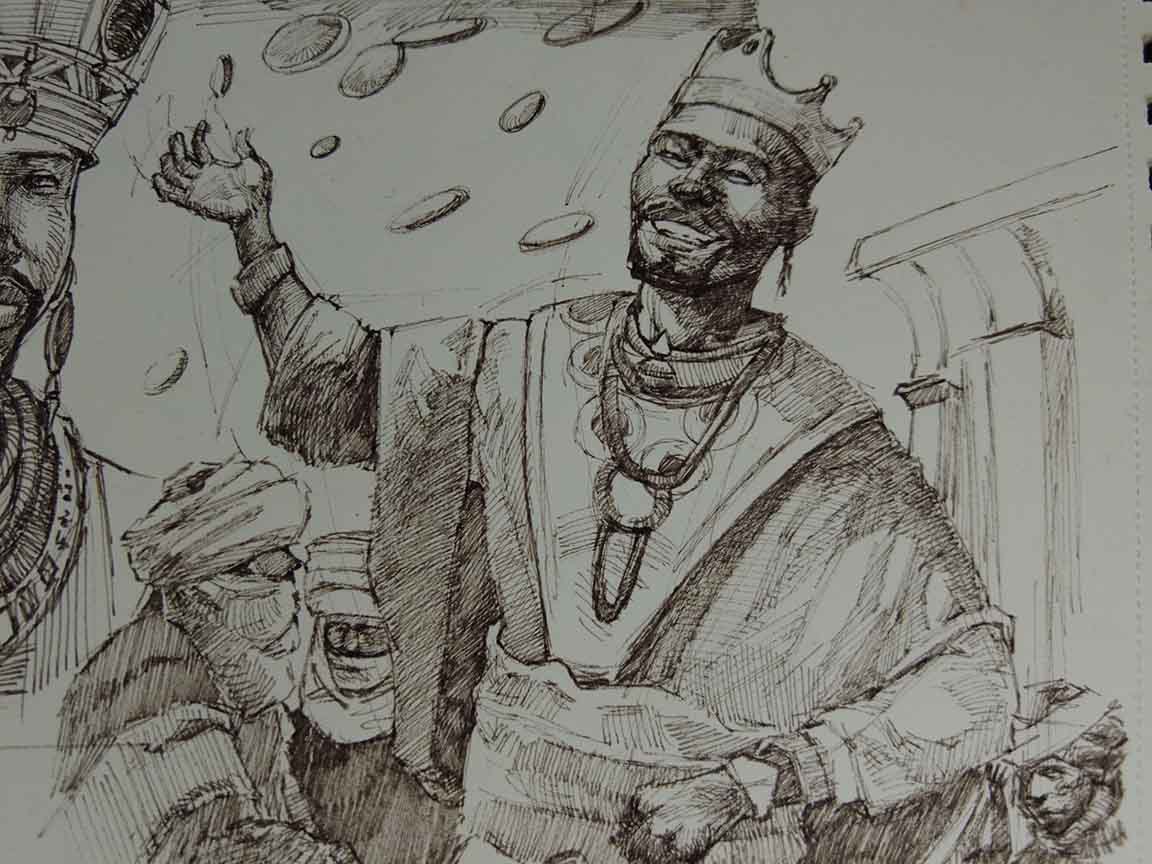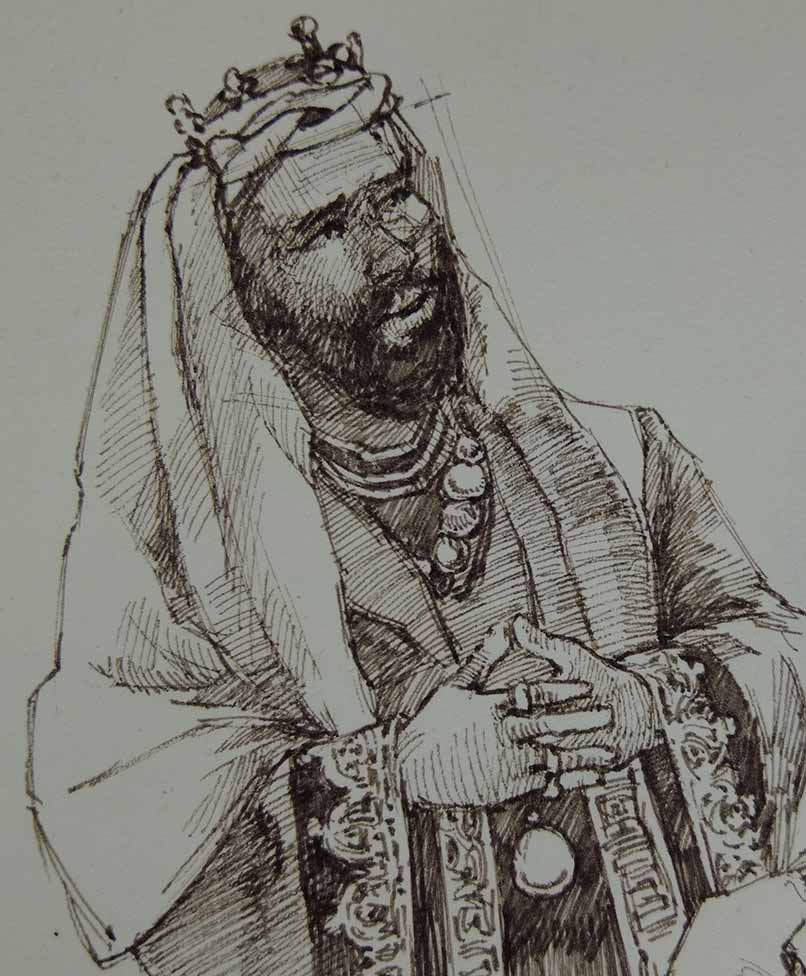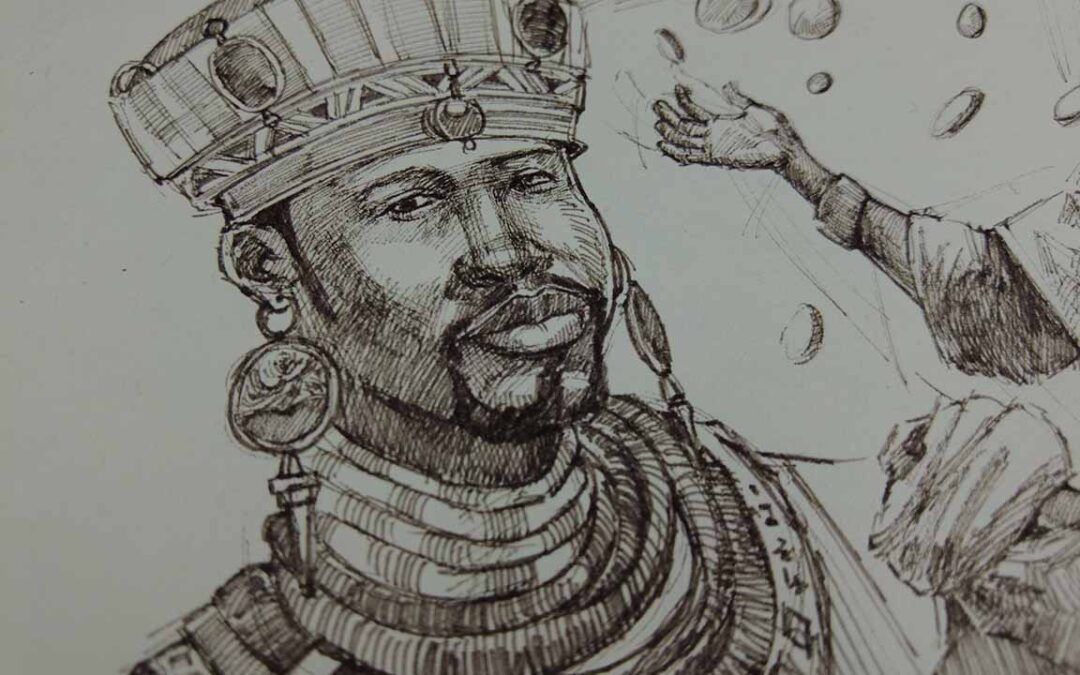
Mansa Musa was born around 1280 in Niani, a city located in what is now modern-day Mali. He was the nephew of the previous emperor, Sundiata Keita, and ascended to the throne as the tenth Mansa of the Mali Empire which was located in what is now modern-day Mali and parts of Senegal, Mauritania, and Guinea after the death of his predecessor, Mansa Abu Bakr II.
Mansa Musa’s reign was marked by great prosperity and cultural achievement. He helped to expand the borders of the Mali Empire and increase its wealth through trade, particularly in gold and salt. One of Mansa Musa’s most famous achievements was his pilgrimage to Mecca in 1324. It was a spectacular event that made a lasting impression on those who witnessed it. He set out on this journey with a large entourage of attendants and camels carrying gold, textiles, and other precious items. He gave away large amounts of gold and other gifts along the way, which further enhanced his reputation as a generous and powerful ruler. Mansa Musa’s journey also helped to spread knowledge of the Mali Empire throughout the Islamic world, which was an important factor in the growth of its trade and cultural influence. His pilgrimage was not only a religious undertaking but also a political one, meant to showcase the wealth and power of the Mali Empire to the rest of the Islamic world.

Aside from his pilgrimage, Mansa Musa was also known for his patronage of scholarship, particularly in the fields of Islamic law and literature. He commissioned the construction of many mosques and Islamic schools throughout the empire, which helped to spread knowledge and education to its people. He also invited scholars and artists from across the Islamic world to come to Mali, which helped to foster cultural exchange, innovation, and education among its people.
His influence over the Mali Empire was significant and lasting. Under his rule, he had diplomatic and commercial relations with various parts of the Mediterranean world, including North Africa, the Middle East, and Europe. He helped to establish the Mali Empire as a major power in West Africa and the Islamic world, and his patronage of scholarship and the arts helped to foster cultural and intellectual achievements that are still celebrated today.

He might not have fought any major wars during his reign as the tenth Mansa of the Mali Empire however, there were occasional conflicts with neighbouring states and rebellions within the empire that he had to contend with. One of the most significant conflicts during Mansa Musa’s reign was a rebellion by the Songhai people, who lived to the east of the Mali Empire. The rebellion was led by a prince named Ali Kolon, who had been exiled from the Songhai court. Mansa Musa was able to quell the rebellion, but not before it caused significant damage to the eastern regions of the empire. He also had to deal with occasional raids by nomadic groups, such as the Tuareg, who lived in the Sahara desert to the north of the Mali Empire. These raids were primarily aimed at seizing the empire’s valuable gold mines, and he had to maintain a strong military presence in the north to protect these resources.
Mansa Musa is widely considered to be one of the wealthiest individuals in human history. His wealth was estimated to be so vast that it is difficult to put a precise figure on it. During his reign, the Mali Empire was the largest producer of gold in the world, and Mansa Musa himself was a devout Muslim who believed in the principle of zakat, or charitable giving which he was renowned for. While it is difficult to quantify Mansa Musa’s wealth in modern terms, some estimates suggest that he may have been worth as much as $400 billion in today’s currency. Regardless, it is clear that Mansa Musa was one of the wealthiest and most powerful individuals of all time.
His reign was a time of great prosperity and cultural achievement in the Mali Empire. He died in 1337, after a reign of 25 years. He was succeeded by his son, Mansa Magha, who ruled for only a short time before being overthrown by a rival faction. Mansa Musa’s death marked the beginning of a period of political instability and decline for the Mali Empire, which eventually fell to the Songhai Empire in the late 15th century.

Despite the passage of time, Mansa Musa’s legacy continues to be celebrated today, both in Mali and throughout the world, as a symbol of wealth, power, and cultural achievement.


Recent Comments